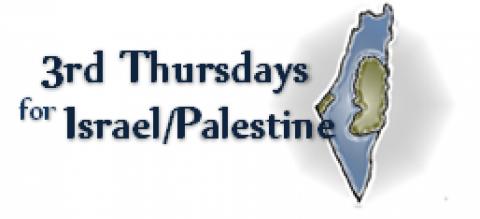
The extent and number of illegal Israeli settlements in the West Bank and East Jerusalem continue to pose major obstacles to Palestinian movement and access to essential services as well as impede Palestinian commercial activity. According to a recent World Bank report, “The complex system of restrictions on movement and access imposed by Israel is the most significant impediment to Palestinian private sector growth.” These restrictions include the limits on the movement of goods into and out of the Palestinian territories, the use of security checkpoints and permits that slow or prevent educational, health and construction personnel from reaching their places of employment or farmers from reaching their fields and groves and limits on access to services such as water and telecommunications. Furthermore, other structures limit movement and access such as the separation barrier/wall and roads for the exclusive use of settlers. It should be noted that the vast majority of the checkpoints and road closures are within the West Bank, separating Palestinians from Palestinians, and not on the Green Line (the 1949 Armistice Line).
The same World Bank report notes that “[t]he Israeli settler population in the West Bank grew from 111,600 in 1993 to 328,423 by 2011 … Settlement areas grew by 35 percent between 2000 and 2011 and now cover almost 3.25 percent of the West Bank.” In addition, it is estimated that there are about 200,000 settlers in East Jerusalem. Also, with land designated for settlement expansion, military zones and nature reserves, 42 percent of Palestinian land is off limits to Palestinians.
And, even as talks between Israeli and Palestinian Authority continue, further settlement plans have been announced and new settlements added to the National Priority list to receive special funding from the Government of Israel. A recent report shows that Israel spends 4-5 times more for illegal settlers living in the West Bank than on citizens living within Israel proper.
Meanwhile, the daily situation faced by Palestinians has not significantly improved. The World Bank report says “GDP growth has fallen from nine percent in 2008-2011 to 5.9 percent by 2012 and to 1.9 percent in the first half of 2013.” Farmers are among those most significantly affected – whether because of gating restrictions or because their lands are in close proximity to settlements.
A 2012 report from the UN Office for the Coordination of Humanitarian Affairs acknowledged that a series of measures had been undertaken by Israel to lessen restrictions on movement and access in some urban areas but that restrictions remained in communities located behind the barrier/wall, those near settlements and in parts of Hebron.
Faith in action:
Send a letter to your members of Congress demanding that the Israeli government ease the restrictions on Palestinian movement and access and cease its funding for illegal Israeli settlements and adhere to its promise from the Oslo Agreement (Article XXXI-7) to not substantively change the situation on the ground.
Suggested language for letter:
I am writing to express my concern about ongoing Israeli settlement expansion and the resultant impact on Palestinian movement and access.
Notwithstanding the current talks between Israel and the Palestinian authority, Israeli settlements continue to expand, facilitated by increased incentives from the Government of Israel. To protect these illegal settlements, Israel has created over 500 checkpoints and obstacles for Palestinians, most of which are within the West Bank itself, separating Palestinians from Palestinians.
Some of the effects of this expansion include:
- limits on the movement of goods into and out of the Palestinian territories
- the use of security checkpoints that slow or prevent educational, health and construction personnel from reaching their places of employment or farmers from reaching their fields and groves
- limits on access to services such as water and telecommunications
- limits on free movement due to the separation barrier/wall and roads built for the exclusive use of settlers
I therefore ask that you demand that the Government of Israel facilitate Palestinian movement and access and stop its funding and expansion of this illegal settlement activity by urging the Israel authorities to:
- Remove barriers (checkpoints, partial checkpoints, road gates, roadblocks, earth-mounds, trenches, road barriers, and earth walls) that are within the occupied Palestinian Territories
- Expedite the movement of workers through security checkpoints separating Israel and/or East Jerusalem from other parts of the Occupied Territories
- Allow farmers to access their lands for cultivation
- Open access roads to Palestinian commerce
- Revoke the permit scheme associated with the barrier/wall
- Ease restrictions on access to closed areas and
- Bring to justice settlers who impede, prevent or attack Palestinians
Sincerely,
